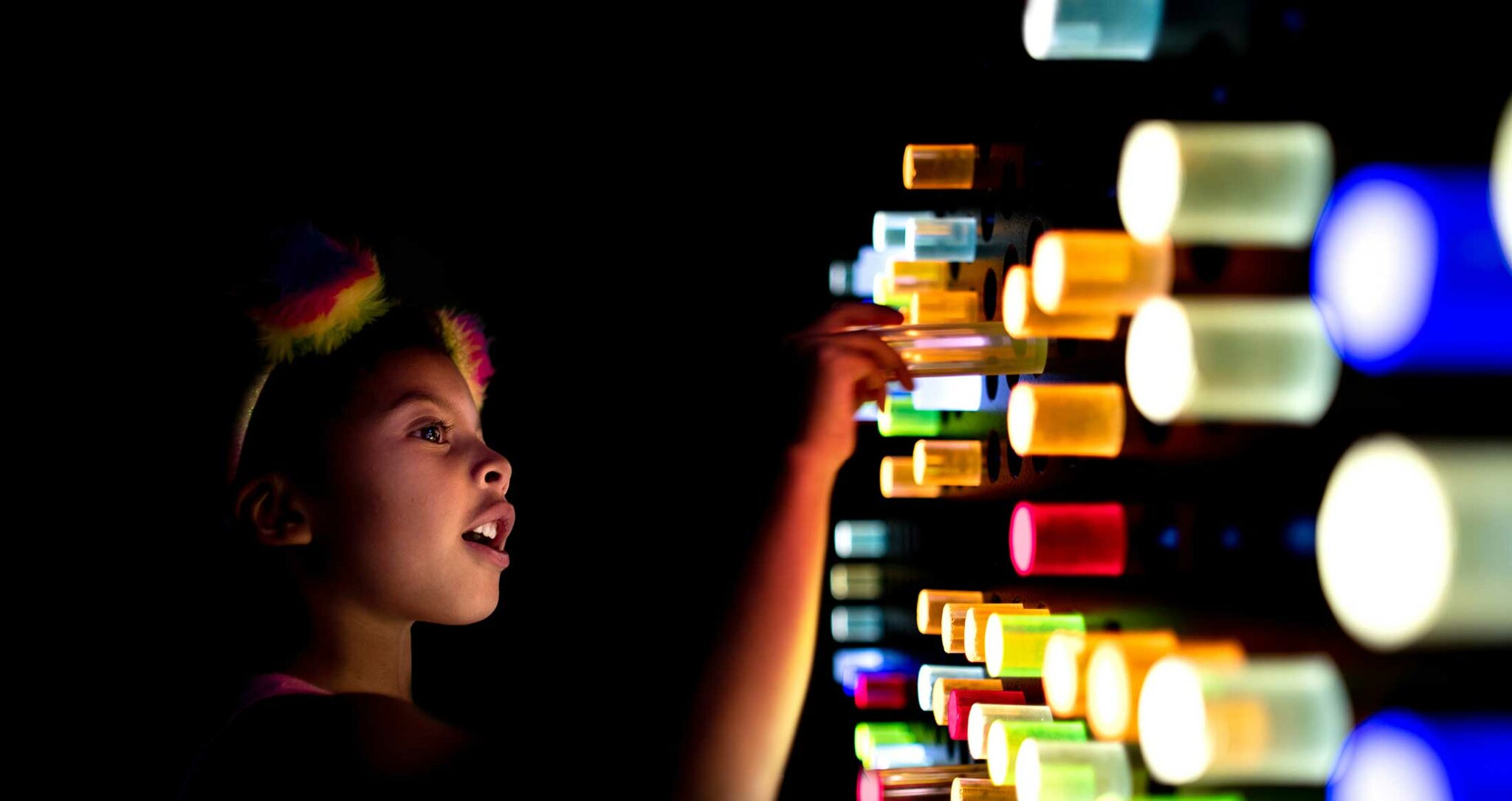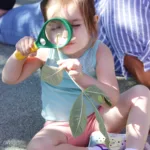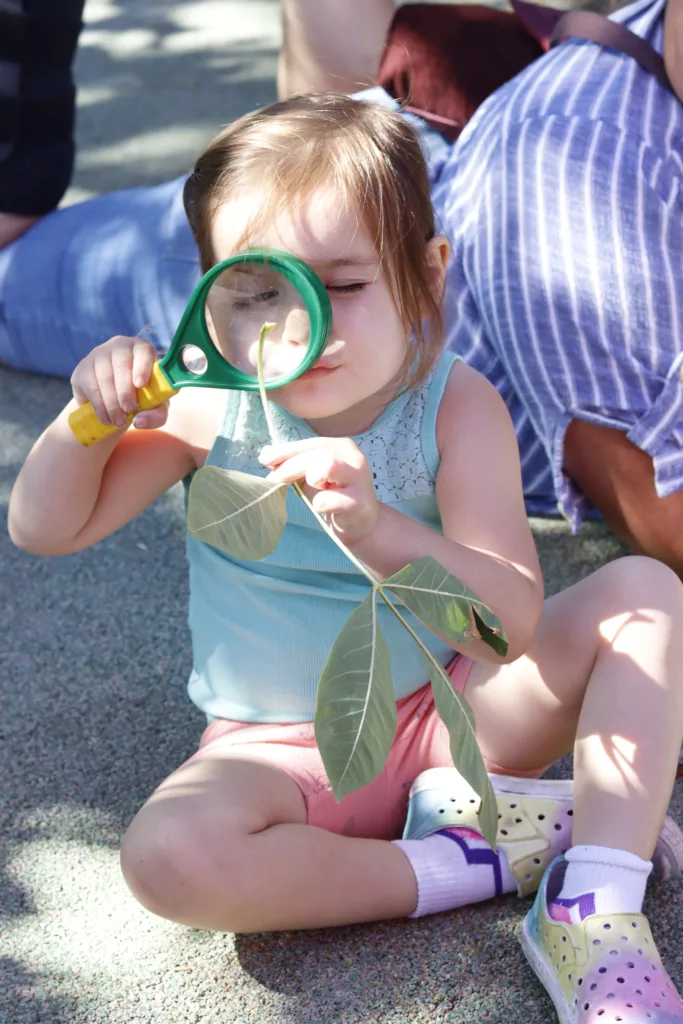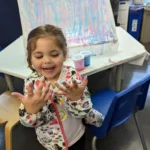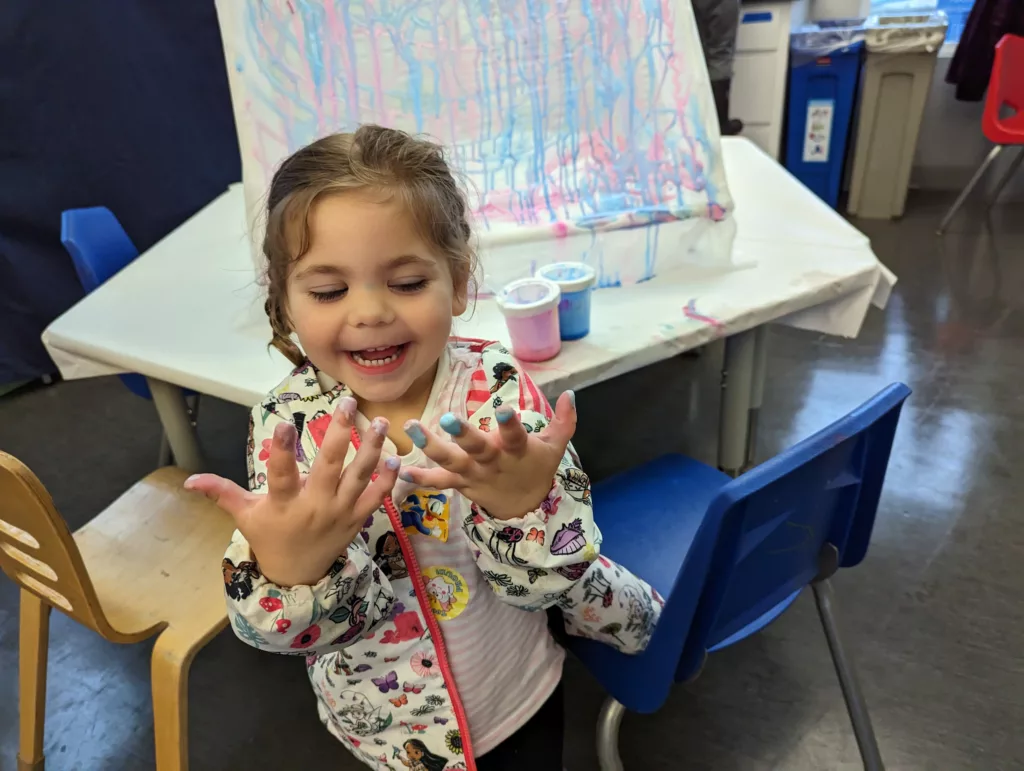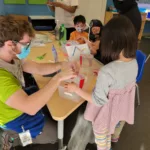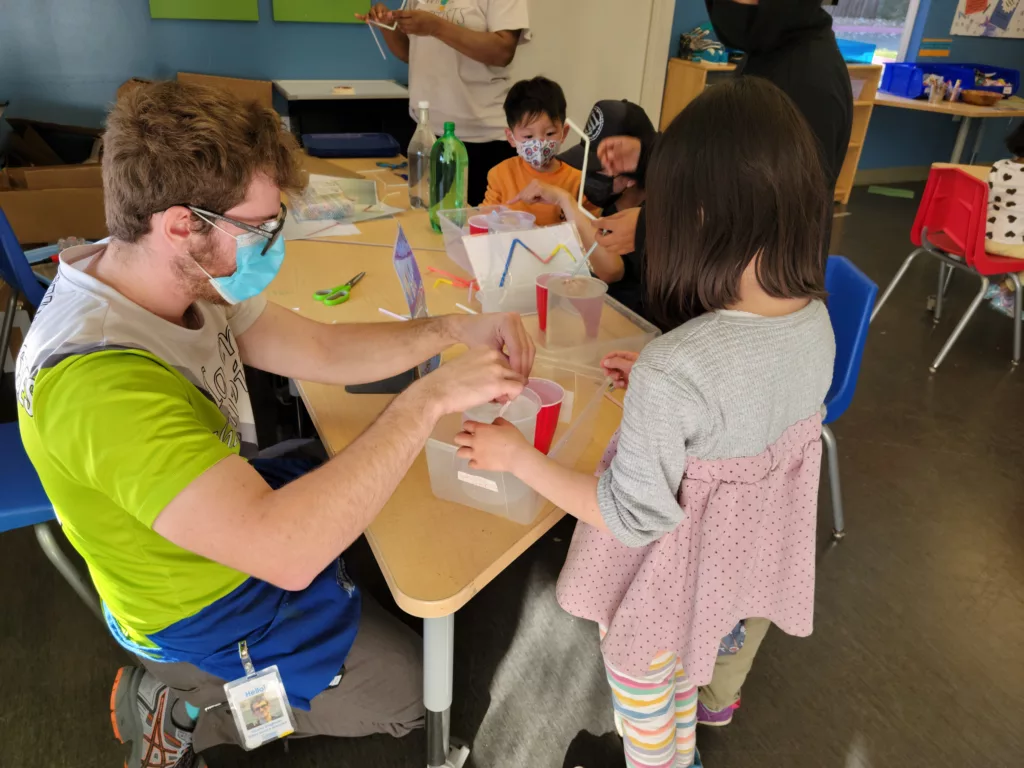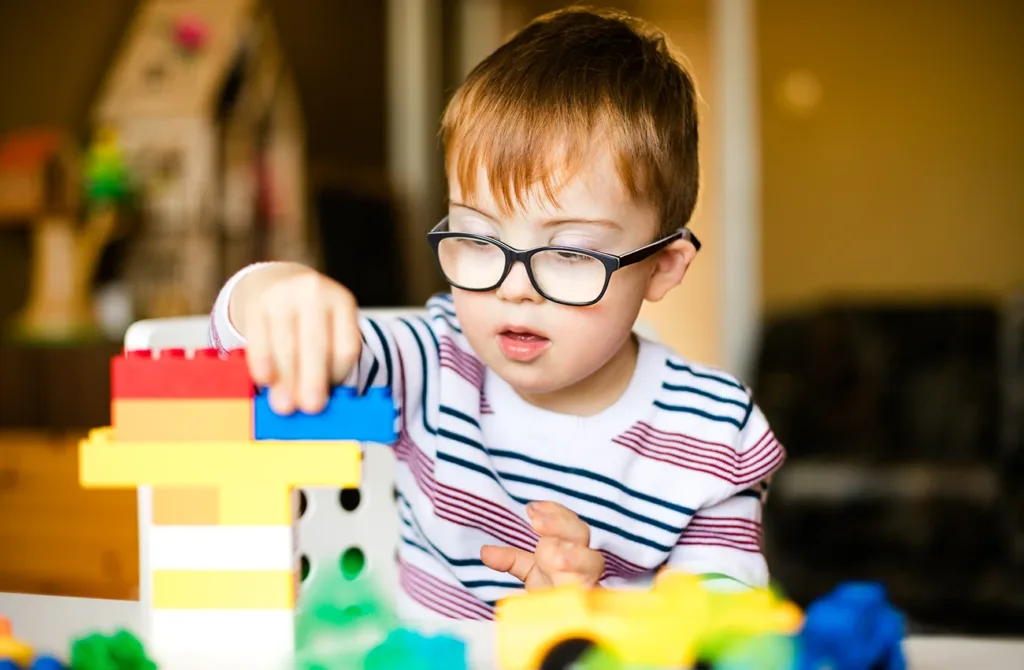
Did you know that 90% of a child’s brain development happens before the age of five?1 Play is serious work, especially when it comes to early childhood development. Playtime is when kids learn how to learn, and it allows them to practice all kinds of important life skills. That said, did you also know that independent play for toddlers is just as important as interactive play?
It can feel completely counterintuitive to encourage young children to play by themselves. But giving a toddler time to play independently allows them to explore, create, and learn at their own pace, building confidence and tons of other important life skills along the way.
In this post, we explore the importance of independent play for toddlers and why it’s so beneficial for early childhood development.
What is Independent Play?
First things first–what is independent play exactly? For toddlers, independent play is simply allowing them to play on their own with no direction or guidance from an adult. This can look like acting out stories with toys, stacking blocks, looking through picture books, exploring a sensory bin, and so much more.
What it doesn’t mean is leaving a child alone with a few toys to fend for themselves. Independent play involves creating a safe space for toddlers to play, think, and create on their own with an adult nearby. The key to independent play is to let your toddler choose how they want to play in that moment, allowing them to follow their own imagination and curiosity.
Toddlers are natural-born explorers. When given the opportunity, you might be surprised to see how easy it is for kids to create their own fun, and how much they learn in the process.
The Benefits of Independent Play for Early Childhood Development
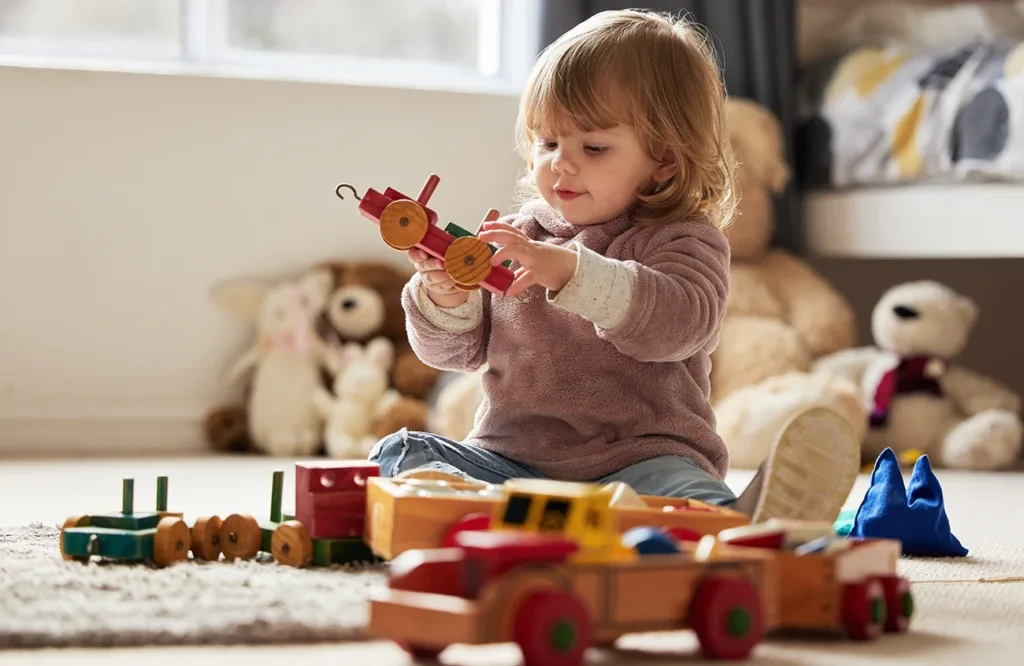
Independent play has an important role in a toddler’s overall growth and development. When little ones are given the freedom to play on their own, they build essential life skills that will support them well beyond their toddler years.
Unstructured playtime can help foster creativity, autonomy, and concentration skills, all of which are crucial for early childhood development. Before the age of five, when children’s brains are developing rapidly, even simple solo activities can establish the framework for confidence, problem-solving, and self-awareness.
Below, we take a closer look at some of the key benefits of independent play for early childhood development:
Encourage Creativity and Problem-Solving
When toddlers play independently, they can immerse themselves in a world that is entirely their own. They can act out creative stories, make up games, and invent new ways of playing with their toys. We all know that in the hands of an imaginative kiddo a simple block can become a train, a mountain, or a spaceship blasting off into outer space. Without outside direction, kids are more likely to use their imagination and think outside the box.
This kind of open-ended play can also strengthen a toddler’s ability to problem solve by helping them learn how to make choices and figure things out on their own. Whether they’re trying to fit puzzle pieces together or build an impenetrable fortress, they’re practicing creative thinking, experimenting with new ideas, and learning as they go.
Build Confidence and Independence
Independent play gives toddlers the chance to self-direct and puts them in charge of their own little world for a bit. They decide what to play with, how to interact with it, and what they want to create with it. This allows a child to discover their own interests and capabilities without the direct influence of other kids or their caregiver.
Early self-discovery like this can help build a stronger sense of autonomy and confidence in their own abilities. Even small moments of self-guided play can help toddlers learn what they like to do for fun and what they are good at, which is important for developing a healthy sense of independence.
Over time, as they become more confident in their abilities, kids can become more inclined to persevere through small difficulties all on their own. By always being readily available if needed, it can encourage toddlers to rely on their own resources first while also learning to recognize when to ask you for help.
Develop Attention Span and Focus
Did you know that focusing is a learned skill? No one is born with the ability to pay attention or focus. These are valuable cognitive abilities that we start developing in early childhood and practice throughout our lives.2
When toddlers engage in free play, they are naturally more inclined to concentrate on one activity at a time. Because they’re not vying for control of the space, or being distracted by other kids, toddlers are often more engaged and focused on their chosen activity during solo play.
Over time, this can strengthen their ability to stay focused without needing constant stimulation from screens or other people to hold their attention. This kind of self-directed engagement helps lay the groundwork for developing key executive function skills like focusing and paying attention for extended periods of time.
Support Emotional Awareness and Self-Soothing
Independent play also gives toddlers the opportunity to explore their inner world. It provides opportunities for them to identify new emotions at their own pace and process their feelings in a safe and supportive environment.
When toddlers play by themselves it can give them a chance to act out feelings they may not have the verbal skills to express yet. A doll might be sad and need cheering up, or a stuffed animal might be scared to visit the dentist or the doctor. Children can learn to recognize and label their own feelings in a safe, and constructive way, helping them to process their emotions and understand them better.
Toddlers who are comfortable playing independently can also begin to develop a strong sense of resiliency and emotional regulation. When their block tower accidentally topples over, or they can’t find a certain toy, these small challenges don’t have to be the end of the world. Learning to overcome feelings of frustration or boredom all on their own are early steps in developing self-soothing and emotional awareness skills.
Independent play is a simple but powerful way to support a toddler’s development. Just by giving them a safe space to explore and play on their own can help little minds develop and practice essential life skills. They’re learning, growing, and discovering what they’re capable of, all through the power of play!
More Resources on Early Childhood Development
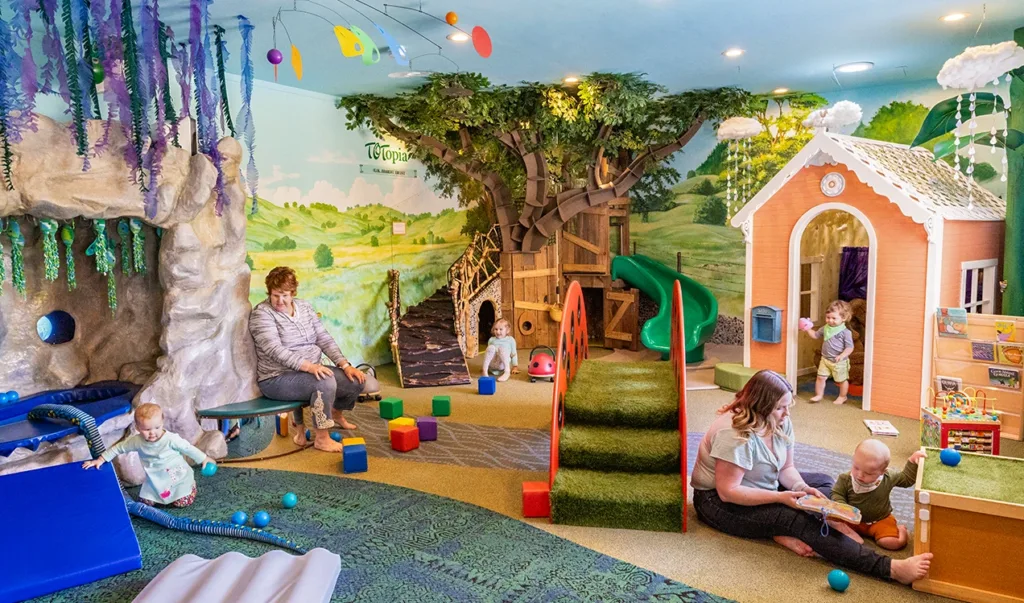
At the Children’s Museum of Sonoma County, we understand the importance of playtime for little learners. We invite you to explore our PLAYology Playbook blog for more articles covering a range of topics and insights on early childhood development. Or visit the Children’s Museum and see firsthand how play can help children grow, learn, and thrive!
Our TOTopia exhibit area is specifically designed for infants and toddlers, featuring engaging activities that focus on sensory exploration and motor skill development! Located just outside TOTopia, you will also find our Family Resource Center which offers information and resources for families with young children.
References
- First Things First. (2023, January 13). Brain development – first things first. https://www.firstthingsfirst.org/early-childhood-matters/brain-development/
- A Guide to Executive Function – Center on the Developing Child at Harvard University. (2025, March 13). Center on the Developing Child at Harvard University. https://developingchild.harvard.edu/resource-guides/guide-executive-function/
